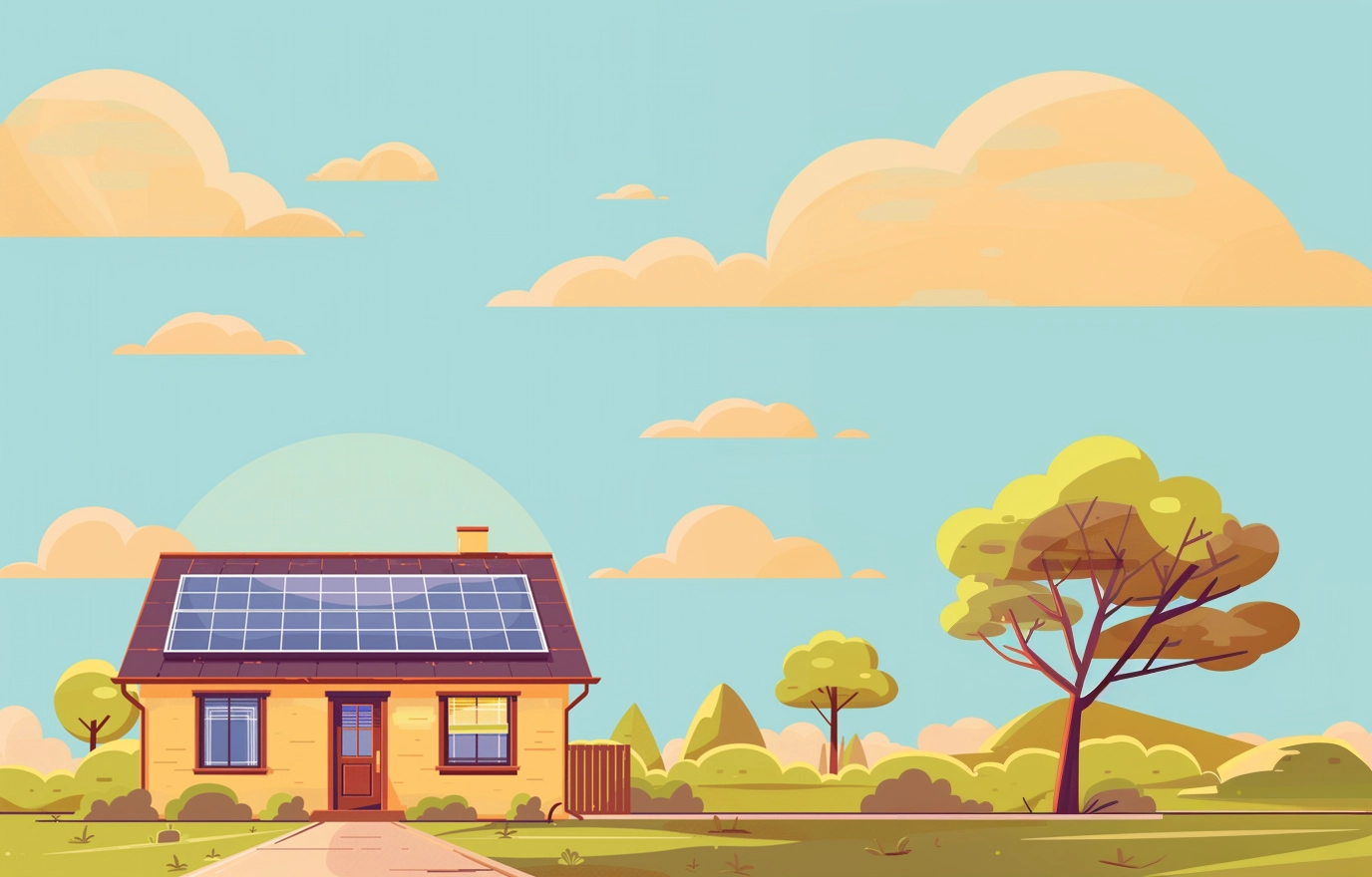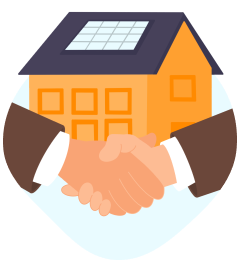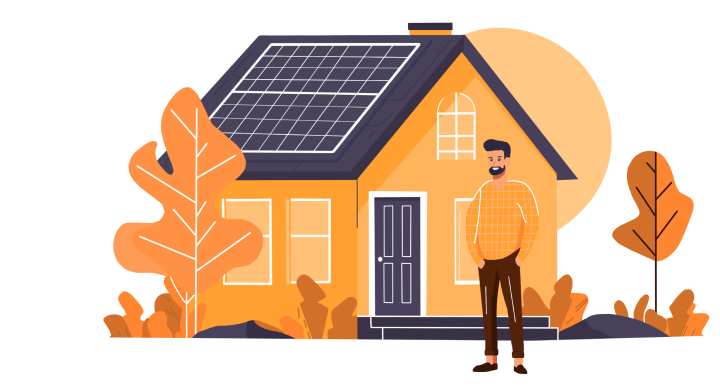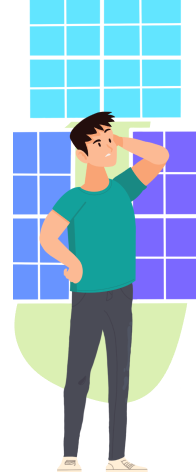"Can I install solar panels myself?" is a question many eco-conscious homeowners like you frequently ask.
Solar panel installation can appear as a tantalizingly simple DIY project, potentially saving you money upfront. However, this project involves many hurdles that can be avoided with professional expertise.
With this in mind, here's why it's time to stop looking at DIY solar panel installation tips.
Reason #1: Solar panel installation is technically complex.
It's possible to miss important design and layout details.
A well-designed solar system requires careful planning. Factors like roof orientation and shading play a significant role in how efficiently your system will generate energy.
To maximize energy production, the panels need to be positioned optimally to capture the most sunlight throughout the day. This kind of strategic placement isn't something you can easily wing; it demands professional solar installation. Plus, getting these design details wrong can result in underperformance.
Solar panel systems should be compatible with your home's electrical systems.
Ensuring the compatibility of a solar panel system with your home's existing electrical system is crucial for safety and functionality. A mismatch can lead to system inefficiencies and potential overloads, putting both your investment and your home at risk.
Professional installers have the specialized skills and tools to integrate the solar panels with your home's electrical setup safely. They understand the intricacies involved and ensure the system is balanced. That's why expert solar technology compatibility checks are essential to guarantee smooth and safe operations.
Reason #2: There are safety risks involved in DIY installation.
Wiring and electrical integration can pose safety concerns.
If you're asking, "Can I install solar panels myself?" or other similar questions, remember that the process of installing solar panels involves complex wiring and integration.
To properly incorporate solar panels into your home, you need specialized knowledge when it comes to electrical configurations and safety protocols. Incorrect wiring can lead to hazards such as short circuits, electrical fires or damage to your home's infrastructure.
Attempting to handle this complexity without professional expertise exposes everyone in your home to potential injury.
Electricity isn't something to take lightly, and mishandling it can lead to severe accidents or even fatalities. Professionals are trained to follow rigorous safety protocols, minimizing the risk of electric shocks or fires. They also have the tools and protective gear to manage these high-stakes tasks safely.
Hiring professional solar power installers ensures every step is taken with safety in mind.
Reason #3: You need to meet regulatory and permit requirements in your area.
There are local permits and inspections required for installing solar grids.
Remember that you also have to think about the requirements as someone who's asking, "Can I install solar panels myself?"
Instead of just focusing on a step-by-step guide to installing solar panels, keep in mind that the whole setup must meet local regulations and safety standards, as well as have the appropriate permits and clear the necessary inspections.
Going through this bureaucracy isn't straightforward and can be especially challenging if you're unfamiliar with the legal and safety standards specific to your area. It's a maze best managed by professionals who specialize in installing home solar panels and are well-versed in their requirements.
Dedicated providers can take care of the heavy lifting and government requirements.
While you might've asked, "Can I install solar panels myself?" optimistically, it can be hard to process everything on your own. However, if you opt for a professional yet cheap solar installation, a qualified electrician or engineer will typically meet with you to assess your property.
To optimize compatibility, they'll look at your internal power system, roofing and any potential shade issues. Photos and measurements are also usually taken at this point. So when you hire a professional service, a team doesn't just show up with a box of tools and start drilling. A trained electrician or engineer will conduct a thorough evaluation of your property.
In line with this, they will usually handle or guide you through any of the federal permits and paperwork needed. This is the key documentation that generally confirms that your home can safely support solar energy and that the equipment can be configured properly.
Reason #4: There are potential cost pitfalls of DIY installation.
Your initial cost savings could impact potential long-term benefits.
Asking, "Can I install solar panels myself?" can spark a personal project. While a DIY solar panel kit may save money upfront, mistakes can lead to costly repairs, inefficiencies or system failures over time.
For instance, if the installation of solar panels isn't done correctly, you could face structural damage to your roof or serious malfunctions in the system. These errors aren't only expensive to fix, but they could reduce the efficiency of your setup, resulting in lower energy savings and other solar panel benefits.
Small errors in the installation process can also disqualify you from local tax incentives or rebates, negating any initial costs saved. In the long run, professional installation can save you more money.
Frequently Asked Questions (FAQ)
What is the warranty situation for DIY-installed solar panels?
If you've had questions like "Can I install solar panels myself?" running across your mind, note that DIY-installed solar panels often void the two types of manufacturer warranties: product and power.
Product warranties cover the materials used in the solar energy system to ensure quality and durability, while power warranties ensure that the panels' natural degradation happens at a slow rate—generally not exceeding 2 to 3 percent in the first year.
If your panels aren't installed by qualified solar installers or providers, you may lose coverage for repairs or replacements. This is a key consideration since warranties protect against defects and operational issues. Without this safety net, any repairs or replacements would come directly out of your pocket.
How do I ensure that my DIY installation meets performance expectations?
Asking questions like "Can I install solar panels myself?" means you have to consider the final energy output. To find out if your renewable energy meets your performance expectations, you may have to test your system with additional tools that check energy generation. You might also have to reference voltage meters and measurements before and after the installation.
While all this could be done after a DIY project, you can have more confidence through the expertise and resources a professional solar installer could bring to the table.
What are the safety precautions I need to take during installation?
Solar panel installation should follow safety protocols specific to the solar installation process. This involves handling high-voltage equipment and working at heights, both of which require stringent safety measures. Alternatively, you could hire an experienced solar provider through Solar Energy Host.
With Solar Energy Host, you can get started on solar energy easily.
Our straightforward and secure platform presents you with reputable local providers to ensure you receive competitive solar panel quotes that are complete with installation fees.
The process is simple: you just need to enter your basic information, receive the estimates from our network of providers, and choose a suitable offer.
Make an informed decision with ease through us at Solar Energy Host!



















